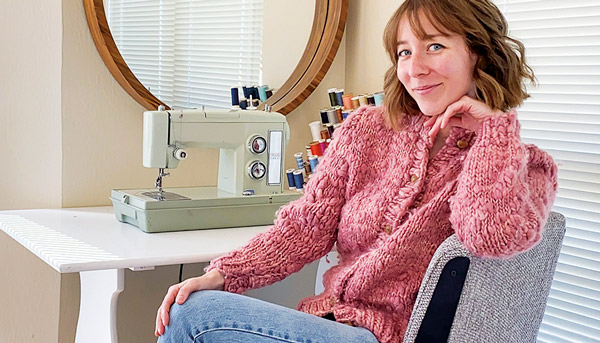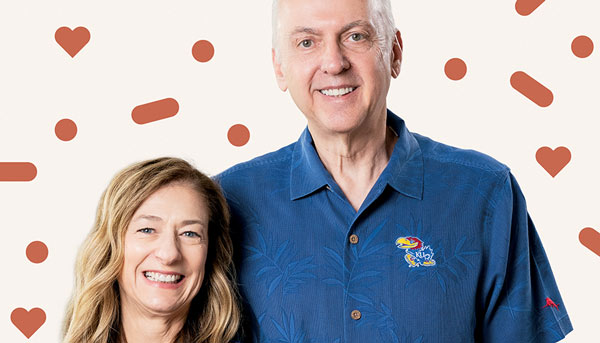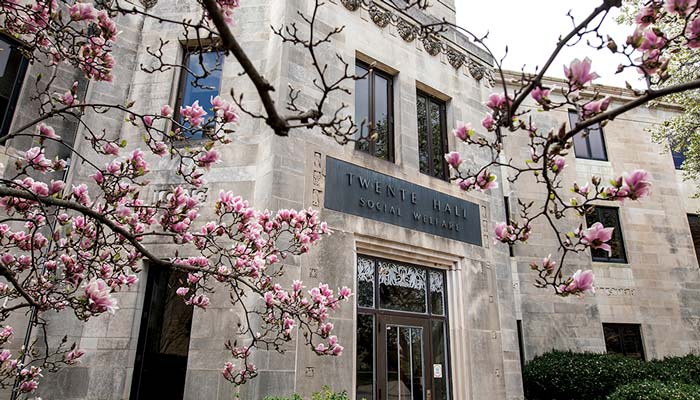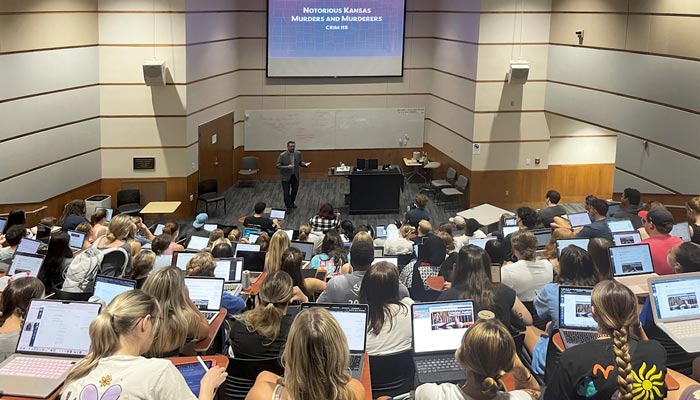Career calling
Pharmacy holds ‘key to the world’ for small-town Kansan
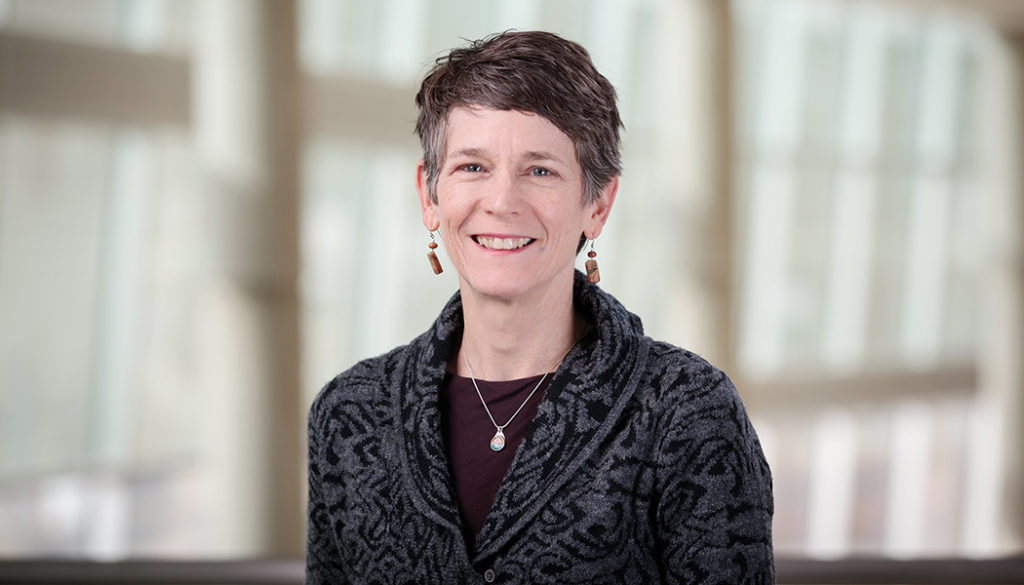
In high school Carrie McAdam-Marx landed her first job, as a soda jerk at her hometown drugstore. Clark Pharmacy, owned and operated by James Coast, p’72, was “the hub” of the southwest Kansas county seat of Cimarron.
“A lot of things centered around the pharmacy,” she recalls. “Coffee breaks and meeting friends after school. It was just a critical part of our community.”
Over time McAdam-Marx, p’88, learned precisely how critical was the pharmacy’s role in Cimarron, population less than 1,500.
The town lost its doctor and attempts to recruit a replacement failed. “At that time, it was just about impossible to get doctors to move to small towns,” McAdam-Marx says. “We had a series of practitioners coming from Dodge City and Garden City to help, but the pharmacist was the one really stable medical aspect for Cimarron. After we lost the doctor, people really depended on the pharmacy.
“We got by without a permanent health care provider, but it was much more possible and much better for the community that we had an independent pharmacist who was so committed to the patients he served.”
Planning to become a doctor and return home, McAdam-Marx entered KU on the advice of another Clark pharmacist, who urged her to consider pharmacy school for her pre-med training. Before the end of her first semester, she says, “I switched to pre-pharmacy and never looked back.”
So began an academic marathon that included a School of Pharmacy degree from KU, a residency and master’s degree in hospital pharmacy from the University of Minnesota, a PhD in health policy from the University of the Sciences in Philadelphia, and a master’s in clinical investigation from the University of Utah. Along the way she held jobs in managed care pharmacy and the pharmaceutical industry that took her to England and Australia. She’s now professor and director of the master’s program in pharmacy practice and science at the University of Nebraska Medical Center in Omaha.
“I fell in love with pharmacy when I discovered that a pharmacy degree can be a key to the world, not just a key to the pharmacy,” she says of the nontraditional career path that took her far beyond a goal—still firmly in place when she started her last year at KU—to return to southwest Kansas and buy her own pharmacy.
“As so often happens in life,” McAdam- Marx says, “the world changed and my eyes opened to other opportunities.”
That’s a message she stresses now to pharmacy students who, for the first time in years, are facing “an equilibrium” between the supply and demand for pharmacists.
“Our graduates used to be able to pick and choose where they wanted to go,” she says. “Now everybody is cutting back, there aren’t as many positions and students realize there’s competition for jobs. Most start school thinking they’ll either work in a retail or a hospital pharmacy and that those are pretty much the options. What I communicate is there’s so much more you can do with a pharmacy career if you want. I got to do some super-cool stuff, and it’s all because I had a pharmacy degree.”
In the workplace McAdam-Marx was drawn to the management aspect of pharmacy; now her research focuses on big-picture analysis that generates data to support policy decisions about which drugs work better and are more cost-effective across a broad patient population. One project examines the benefits of having a pharmacist on staff in primary care clinics: In that scenario, currently more common in academic medical centers, doctors delegate responsibility for prescribing medications to the pharmacist, who sees patients and counsels them on how to manage their medications. Researchers are still analyzing data, but the arrangement “definitely demonstrates better outcomes for the patients,” McAdam-Marx says. “When they have a pharmacist on their health care team to help their doctor, patients tend to demonstrate better responses to the drug therapy and better control of their disease state.”
Though her professional journey has been wide-ranging, “with every move I tend to get a little closer to southwest Kansas, and to smaller and smaller communities,” she notes. “So I guess there’s still some small-town girl in me.” The lessons of her first job endured, too.
“I’m happy with the way my path has gone, but I wouldn’t have had the journey I’ve had without knowing the value of a pharmacist, and I was lucky enough to experience that in a small-town setting where our pharmacist was practicing in a way we strive to practice today,” McAdam-Marx says. “I would like to see my research go back to supporting the role of a pharmacist as a respected, integrated member of the patient’s care team, and not somebody who’s so busy behind a counter and has so much pressure that they don’t have time to interface with patients like they did in the past.
“That’s my ultimate goal—get the pharmacist back in front of the patient a lot more.”
Photograph courtesy Carrie McAdam-Marx




